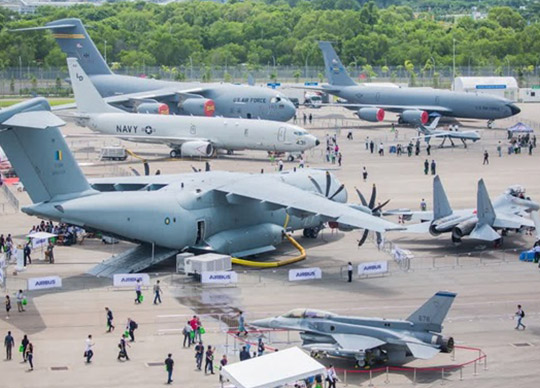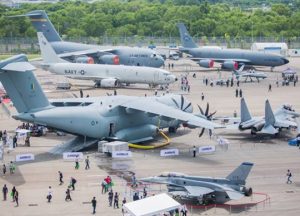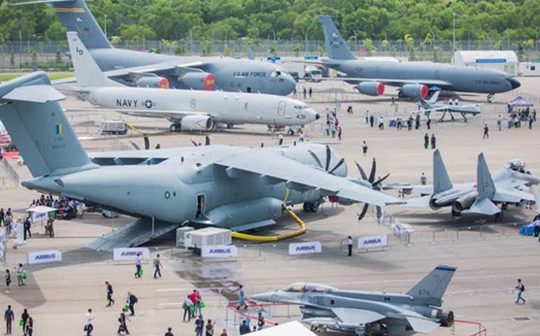

Image credit: Singapore Airshow 2024.
Singapore Airshow 2024 has announced an unparallelled trade attendee turnout at its ninth edition that was held at the Changi Exhibition Centre from 20-23 February 2024.
The record number of close to 60,000 trade attendees, a 10% increase compared to the previous high in the 2018 edition, signals a renewed optimism and recovery in the aerospace landscape in the Asia Pacific region that is forecasted to account for over 45% of the new aircraft deliveries between 2023 and 2042.
Since its inception in 2008, Singapore Airshow has served as a platform that fosters collaboration and helps chart a transformative course for the aerospace and defence industry.
Each edition welcomes industry leaders, government officials, and military delegations who converge at the Changi Exhibition Centre to network and exchange ideas.
“We are delighted to announce this overwhelming response for this edition; it clearly signals a renewed optimism and momentum driving the sector forward. It certainly reaffirms Singapore Airshow’s role as a catalytic platform for industry sector professionals worldwide in the global arena to convene and draw up tomorrow’s agenda,” said Mr Leck Chet Lam, Managing Director, Experia, organiser of Singapore Airshow.
AeroForum, Singapore Airshow’s thought-leadership forum, which hosted the largest volume of strategic conversations across nine panel discussions that presented 36 panel speakers and 10 moderators, was attended by close to 600 trade attendees.
Organised in collaboration with five esteemed industry partners – Alton Aviation Consultancy, Association of Aerospace Industries (Singapore), Chinese Society of Aeronautics and Astronautics, Flight Global and McKinsey & Company – a wide range of topics spanning aviation leadership, sustainable aviation, advanced air mobility and China-Singapore bilateral aviation were discussed.
As a key platform for meetings and collaborations, Singapore Airshow also saw several major announcements made during the four trade days, including several focused on meeting decarbonisation targets.
Airbus showcased its commitment to carbon neutrality by 2050, advocating for accelerated progress in sustainable aviation fuel production and unveiling plans in an agreement with TotalEnergies, which will supply Airbus with SAF (sustainable aviation fuel) for more than half of its needs in Europe.
Airbus also announced plans for a hydrogen-powered aircraft slated for operational debut by 2035.
Singapore’s proposal to introduce a levy to support sustainable aviation fuel sparked extensive discussion, reflecting the industry’s determination to meet its 2050 net-zero emission goal.
Boeing outlined its plans for autonomous flights by 2030, while Embraer announced a strategic partnership with Scoot, making the airline the first in the Asia Pacific to adopt Embraer’s Collaborative Inventory Planning solution, a tailored expendable spare parts management programme that “optimises” inventory levels for customers to reduce operational costs.
Several Asia-based airlines also placed aircraft orders – Starlux Airlines placed an order for five Airbus A350 freighters and three A330neo widebody passenger jets to support its fleet expansion.
In addition, Vietjet Air signed a Memorandum of Understanding (MoU) with Airbus to purchase 20 A330-900 widebodies.
The international debut of China’s ARJ21 and C919 jet by Commercial Aircraft Corp of China (COMAC) garnered significant attention, with Tibet Airlines signing a 50-plane deal.
Thai Airways and Royal Brunei Airlines also announced orders for 45 and four Boeing 787 Dreamliners respectively.





